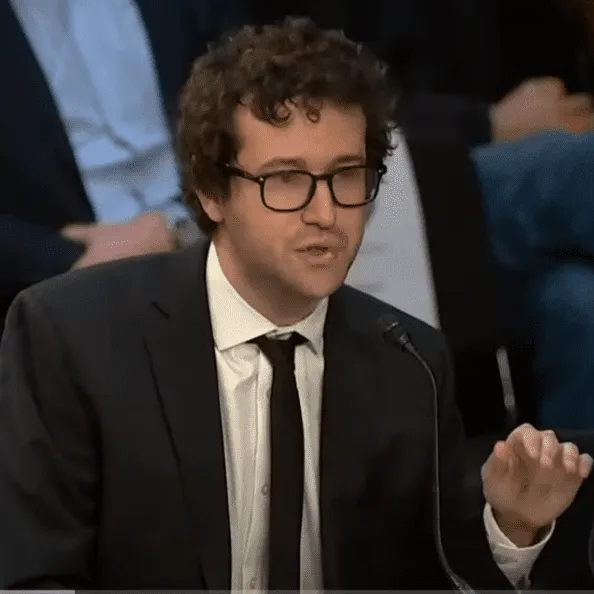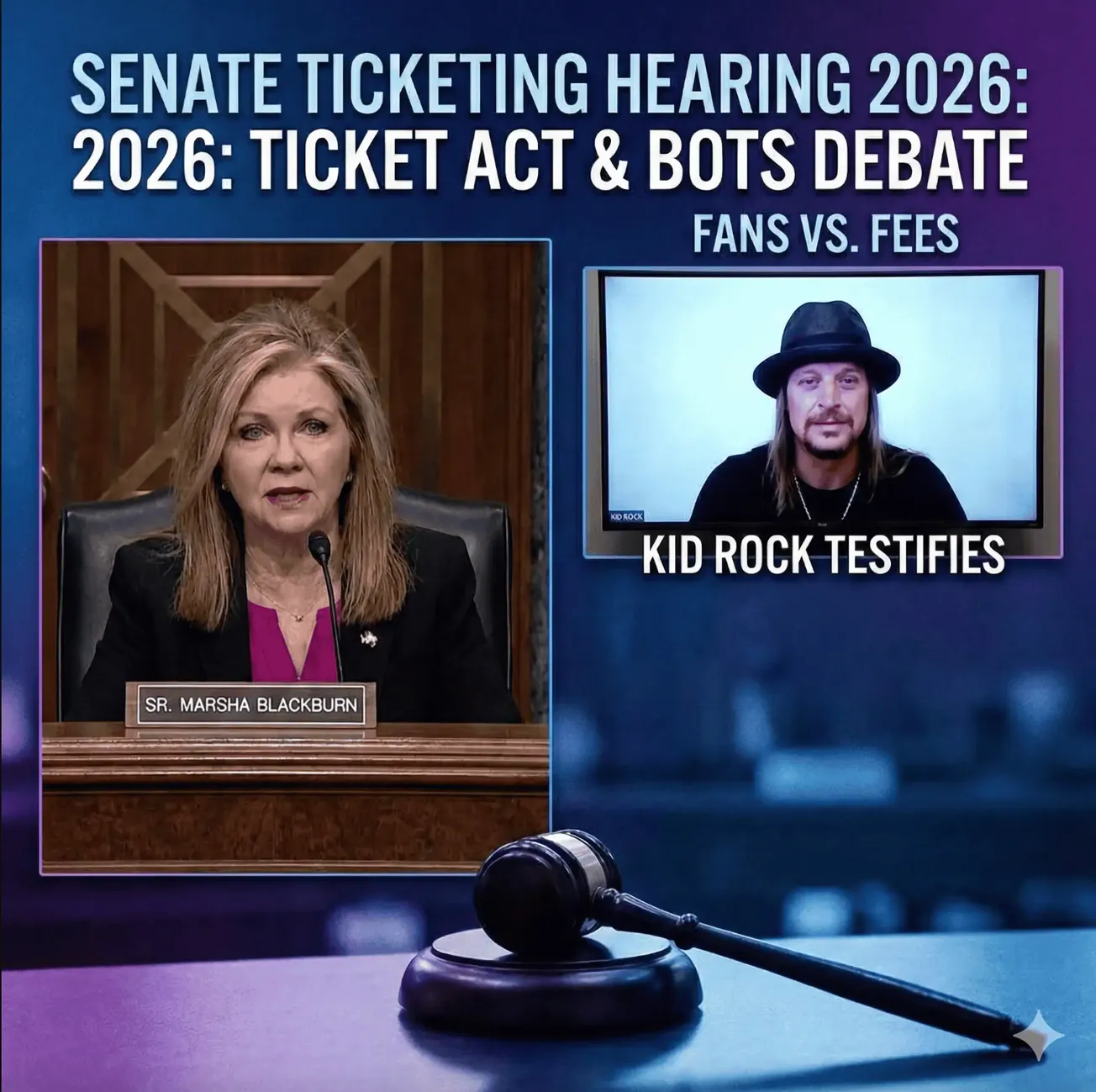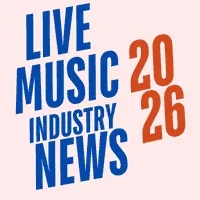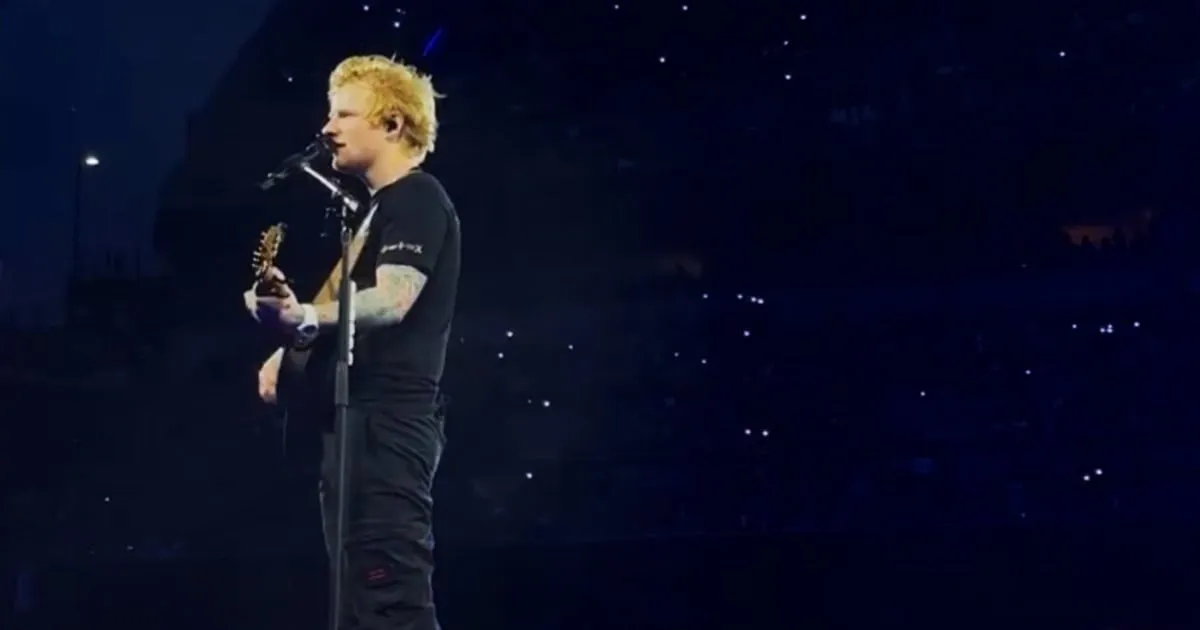Clyde Lawrence of the indie band Lawrence schooled the Senate Judiciary Committee on the “consequences” that artists face when dealing with Live Nation and its ticketing subsidy Ticketmaster.
“How is it fair that we’re agreeing to share in the profits of a show with Live Nation,” Lawrence told the committee, “but then they’re able to add fees of which they keep 100%, making it so that we’re not actually sharing the fan’s total payment in the agreed-upon proportions?”
Hypebot’s reporting and commentary on the extraordinary Senate hearing can be found here.
Lawrence’s full written testimony is below, followed by the video. We have bolded the highlights.
Good morning Senators. My name is Clyde Lawrence, and this is Jordan Cohen.
We are two of the eight members of Lawrence, a soul-pop band from New York City, and we are honored to have been invited here today to speak with you.
Before telling you more about who we are, it’s important to clarify who we are not. We’re not lawyers or economists with expertise in antitrust policy. Neither are we historians of the music industry who can track the impact of the Live Nation/Ticketmaster merger, which occurred well before we started touring. Lastly, we’re not artists on the level of acts like Taylor Swift or Bruce Springsteen, though we do hope to one day be big enough to crash a ticketing website.
What we are, however, are seasoned artists who have toured extensively over the last seven years, starting with empty bars and working our way up to headlining sold out shows for thousands of people, most recently selling 6000 tickets in our hometown of New York City. We’ve played hundreds of concerts, many in the Live Nation/Ticketmaster ecosystem. While we became musicians because of our passion for making music, we realized early on that we needed to embrace the entrepreneurial aspects of pursuing sustainable careers as artists. We’ve chosen to remain a fully independent band, meaning we have no deal with a major label (or a subsidiary of one), which is rare for a band of our level (in 2022, we had the highest charting Top 40 Radio hit of any fully independent artist), and has allowed us to have a more direct and nuanced understanding of our band’s business and how the music industry operates around us.
Ever since we started touring, we noticed what felt like lopsided deal mechanics in certain aspects of the live music industry, and we’ve always made an effort to be transparent about it. Fitting for this panel, a song from our latest album contains the lyric “Live Nation is a Monopoly.” Whether or not it meets the legal definition of a monopoly is someone else’s call to make; we’re just here to tell you about what we’ve observed.
The Consequences of Live Nation as Promoter and Venue
First, while ticketing is extremely important—and we will discuss it—the ways that artists are most directly affected by Live Nation lies in other aspects of their practices, ones that we think are likely to get less discussion today, so we figured we’d start there. On the most basic level, Live Nation acts as the exclusive “promoter” for a large percentage of the venues throughout the country, including many, such as the House of Blues chain, that they own directly. For any of these venues, when an artist chooses to put on a show there, they have no choice but to have Live Nation act as the “promoter.” Far from simply advertising the show, the promoter coordinates and pays the upfront costs to put together a concert, such as renting a venue, staffing the event, and striking a deal with the performer. In the live music market, our promoter should be a true partner to us. Since both our pay and theirs is theoretically a share of the show’s profits, we should be aligned in our incentives: keep costs low while ensuring the best fan experience.
But with Live Nation not only acting as the promoter but also as the owner and/or operator of the venue, it complicates these incentives when looking at line items in a show’s settlement sheet, which ultimately determines how much each party gets paid. Think about line items like “rent” for the venue, or other more opaquely named fees like “house nut” or “facility fee.” In a world where the promoter and the venue are not affiliated with each other, we can trust that the promoter will look to get the best deal from the venue; however, in this case, the promoter and the venue are part of the same corporate entity, so the line items are essentially Live Nation negotiating to pay itself. And to be clear, due to Live Nation’s control across the industry, we have practically no say or leverage in discussing these line items, nor are we afforded much transparency surrounding them. If they want to take 10% of every ticket and call it a “facility fee,” they can (and have); if they want to charge us $250 for a stack of 10 clean towels they can (and have). But it’s not just the fact that we have no say in the Live Nation’s promoter’s costs that are paid to a Live Nation venue, perhaps the most frustrating part is that practically none of our touring costs (our crew, travel, accommodations, or insurance, to name just a few) are covered. If profit is defined as revenues minus costs, then the number Live Nation presents in the settlement sheet as the show’s “profit” is actually not a profit for us at all, because unlike them, we still have all of our costs to deduct.
Another pain point for artists is the significant loss of revenues due to promoter merchandise cuts. Typically, the promoter takes a sizable percentage (roughly 20%) of an artist’s merch sales, and once we factor in our costs of creating and transporting the merch, it can be an even larger percentage (40%) of an artist’s bottom line. The argument is that the venue is providing us the retail space for us to sell our merch. Sure. But we’re providing all of the customers, and yet receive no cut from their many ancillary revenue streams. Live Nation getting around 20% of our gross merch sales while we get nothing on ticketing fees, bar tabs, coat checks, and parking passes doesn’t make a lot of sense to me.
The Consequences of Live Nation as Promoter and Ticketer
Now let’s talk about ticketing. As with promotion, if an artist plays at a Live Nation venue, the artist has no choice but to have the show ticketed by Ticketmaster. I’m sure much of today’s discussion will be focused on the exorbitantly high ticketing fees that are charged on top of the ticket’s base price, and understandably so given its impact on average Americans. But here are some insights into what that looks like from the artist’s side. To be clear, we have absolutely zero say in what these fees are, and when we try not even to negotiate the fees (which we know would be a road to nowhere), but even just to find out how much they will be, we are told nothing. Put simply, we find out the same way as everyone else: by logging onto Ticketmaster when the show goes on sale, and seeing as much as a 40% fee or more (e.g., $12 on top of our typical $30 ticket). Although many ticketing companies have large fees, in our experience, Ticketmaster’s are typically the highest, with us having seen as much as an 82% fee for a Live Nation show last year. And to be clear, we—the artist—do not get a cent of that fee. All of it goes to Ticketmaster. How is it fair that we’re agreeing to share in the profits of a show with Live Nation, but then they’re able to add fees of which they keep 100%, making it so that we’re not actually sharing the fan’s total payment in the agreed-upon proportions?
But it goes beyond the fees – there are other reasons why an artist might prefer not to use Ticketmaster. Representatives at Ticketmaster can be hard to get a hold of to make changes or fix errors in events. When fans buy tickets, all of their personal info goes exclusively to Ticketmaster, while none of it is shared with the artist. It’s safe to assume that most fans would rather receive email blasts from their favorite bands over a ticketing company. And while, in our experience, venues that don’t work with Ticketmaster often allow artists the ability to sell a reasonable percentage of the show’s capacity through an “off-platform” service of their choice, Ticketmaster rarely allows this option at all beyond a rigid and opaque “Fan Club” allotment.
An Example Show
For those outside of the music industry, we’ve been told that the specific deal mechanics of a live show are difficult to envision, so we thought it would be helpful to give an example show. Deals vary widely, though this one runs along the lines of what my band gets. Let’s imagine we just played a sold-out show at a venue Live Nation owns, whether in Illinois or Texas or Massachusetts. Costs will have eaten into most of the money made that evening: $30,000 for the “house nut” (the fixed fee the venue takes), $10,000 for marketing, $1,000 for Insurance, a small per-person amount for ASCAP/BMI licenses, and of course, the $250 for clean towels. Once these costs, some of which went to Live Nation subsidiaries (though we do not always have transparency into which ones), are taken into account, the remainder is split between Live Nation and the band. The tickets were sold for $30, and our pay ended up shaking out to about $12 of each ticket, or 40 percent of the gross.
But in this hypothetical situation, the fan didn’t pay $30 for the ticket. The fan paid $42 because Ticketmaster tacked on its aforementioned substantial ticket fee. So of the $42 a fan spent on a ticket, we received $12. And from that $12, we need to pay for touring costs. Roughly 50 percent of our portion is used for touring expenses — a number that aligns with some other artists we know, while many others have trouble just breaking even. So that leaves $6 per ticket for us, an eight-piece band… pretax — and we pay for our own health insurance.
Conclusion
To be fair, many of the issues we’ve addressed here are not specific to Live Nation/Ticketmaster. But the company’s powerful position across the industry makes it a leader in setting standards. Not to mention their horizontal and vertical reach makes it hard to create competition. Competition is beneficial for many reasons, but innovation is one of the most important. For example, companies in the ticketing space might bring major innovations that allow for lower fees, greater transparency and analytics for artists, and advancements in handling the problematic secondary ticketing market (such as facilitating a safer and fairer system that keeps prices lower while allowing artists to benefit in the resale of their tickets). But it doesn’t matter how innovative these other ticketing companies are; if every Live Nation show needs to be ticketed exclusively through Ticketmaster, there’s no chance for them to break through.
Bruce Houghton is the Founder and Editor of Hypebot and MusicThinkTank, a Senior Advisor at Bandsintown, President of the Skyline Artists Agency, and a professor for the Berklee College Of Music.





